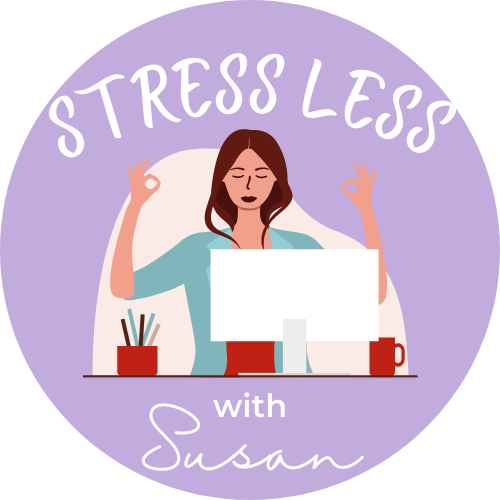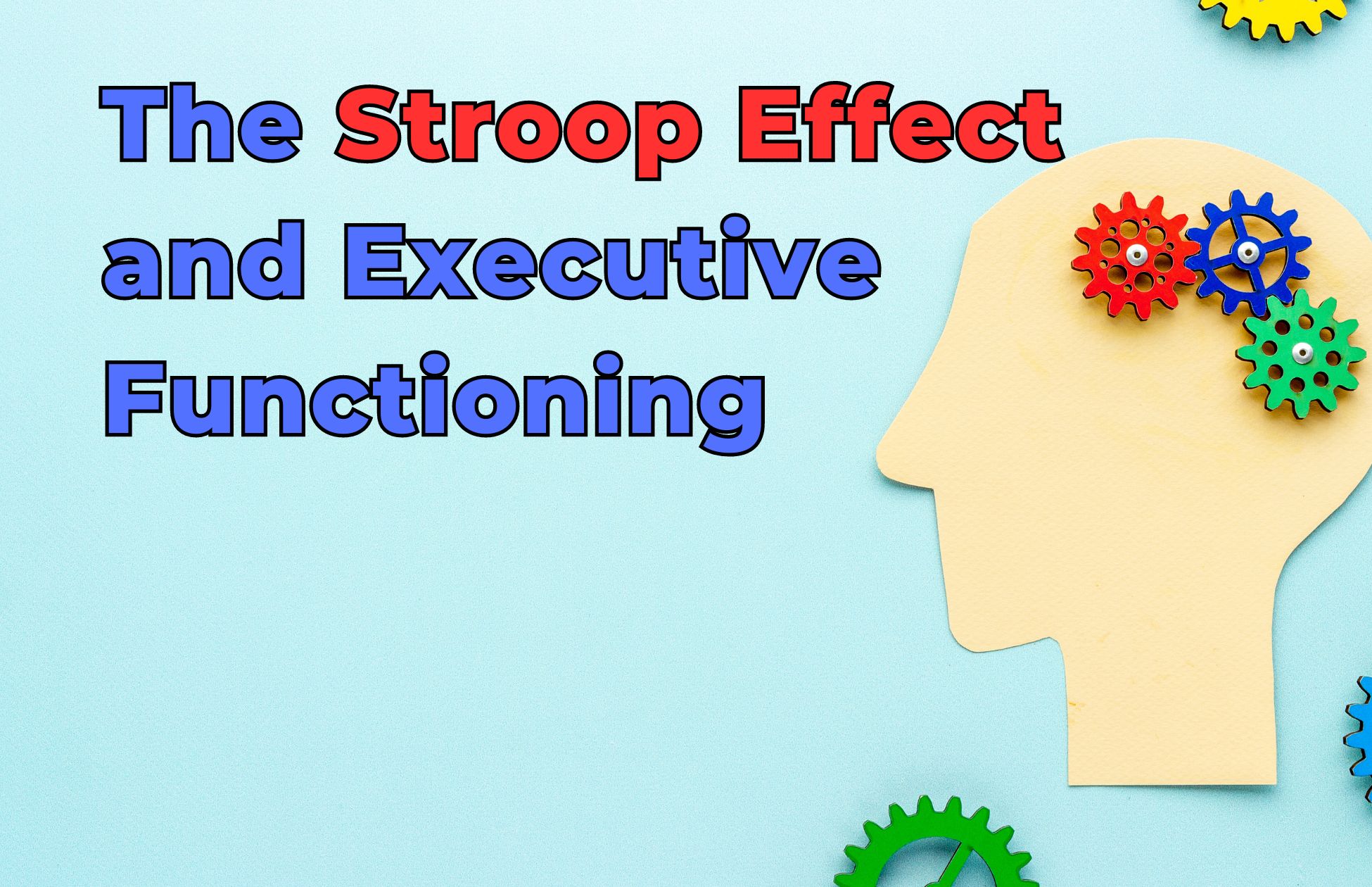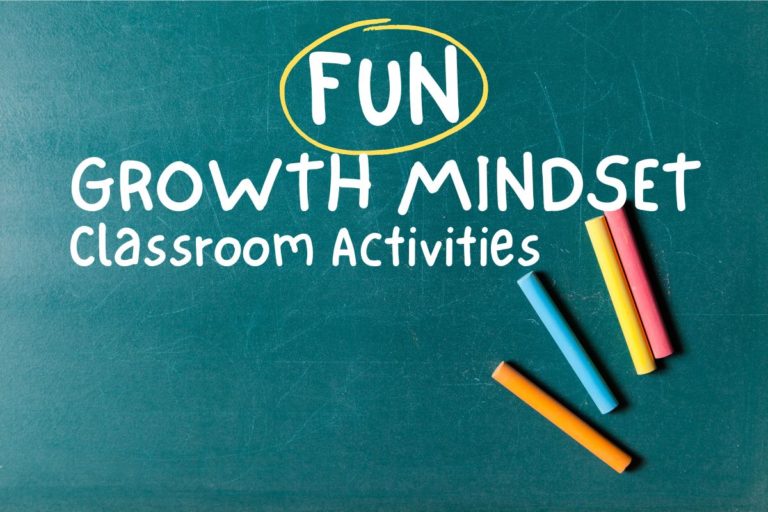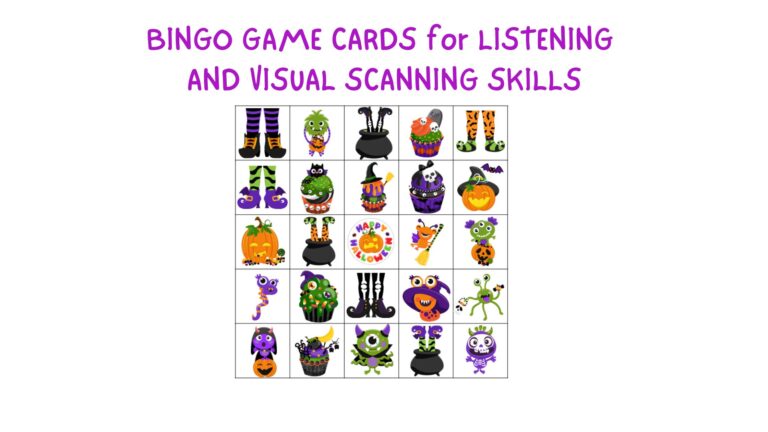The Stroop Effect and Executive Functions
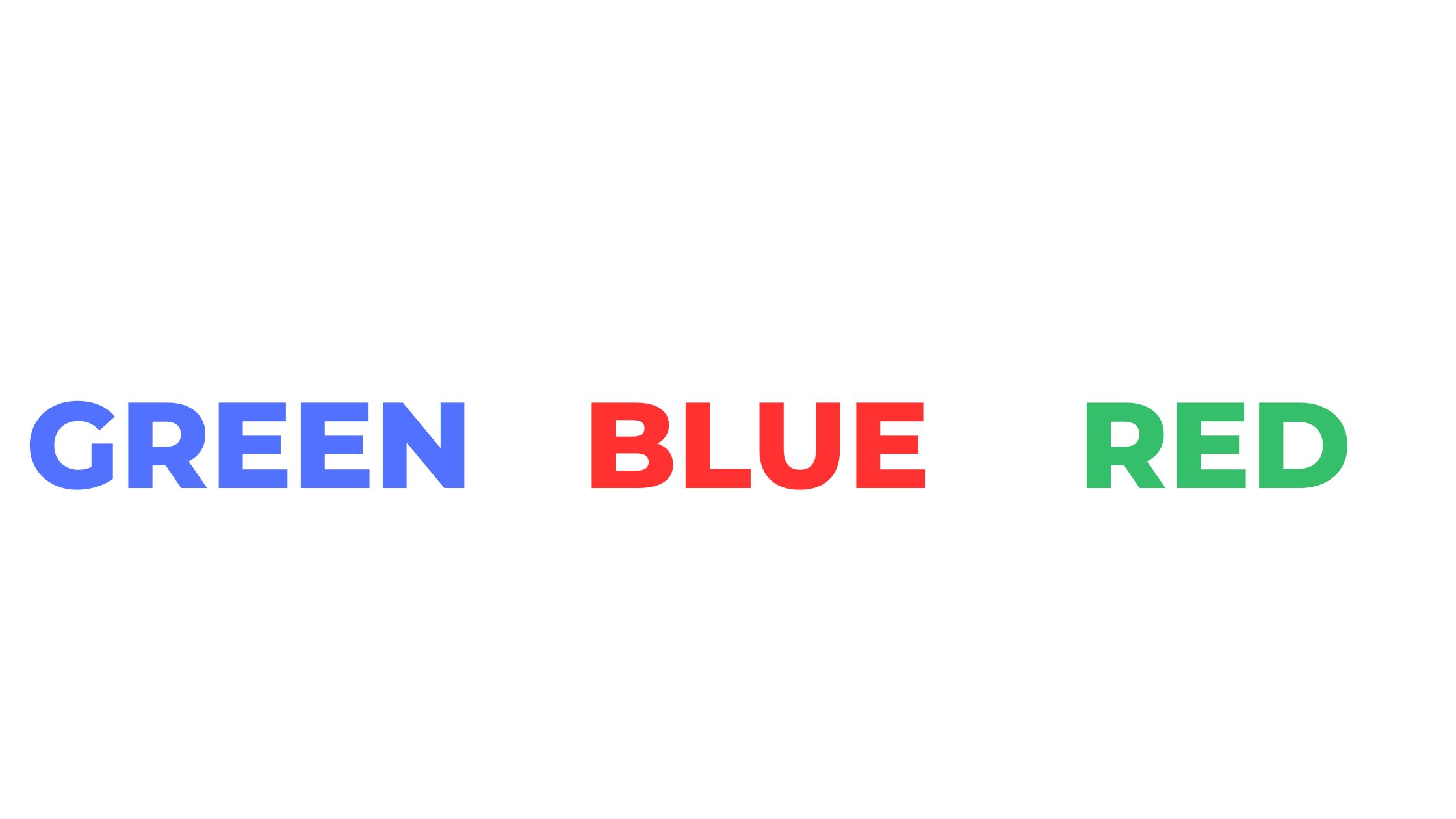
Did you just read the words right above here? I bet your internal voice said “green, blue, red”.
Have you heard of the Stroop Effect? It’s fascinating. It’s the effect we see when even “smart” people have to stop and think to name a color when it’s written in a different color.
Now try this: Say the color, not the word. How did you do? Did you have to mentally take a step back and reframe your thinking? Did you pause a moment before spitting out the answer?
Why does such a seemingly simple task suddenly require mental effort? It’s because that inconsistent (incongruent) information makes us choose what to pay attention to. That’s why we need that little executive “functioning” up in our heads to do its job.
Which executive functions have to go to work, specifically?
The Stroop Effect Requires Selective Attention and Mental Flexibility
Selective Attention
This requires us to pay attention to very specific information and disregard any distractions. We need it for selective attention plays a crucial role in our cognitive processes and daily functioning. It helps us filter and focus on relevant information while disregarding irrelevant or distracting stimuli.
By selectively attending to specific sensory inputs or cognitive tasks, we can allocate our mental energy effectively. Selective attention allows us to concentrate on important details, make accurate judgments, and engage in complex problem-solving. It enhances our ability to process information efficiently, improves memory encoding and retrieval, and facilitates better decision-making.
Overall, selective attention enables us to maintain focus in the midst of distractions, regulate our emotions, and direct our actions towards achieving goals. It’s an important executive function that luckily, can be strengthened with training.
Mental Flexibility
We need to be able to switch how we are mentally processing or viewing a certain type of information. Mental flexibility, also known as cognitive flexibility, is an important ability that allows individuals to adapt their thinking, behavior, and problem-solving strategies in response to changing circumstances or demands.
It enables us to shift our attention, thoughts, and actions in a flexible and adaptive manner. Mental flexibility plays a key role in several aspects of our lives.
- Firstly, it facilitates creative thinking and problem-solving by allowing us to generate alternative ideas, perspectives, and solutions.
- It helps us break free from rigid thinking patterns and explore different possibilities.
- Additionally, mental flexibility enhances our ability to cope with uncertainty and ambiguity, as we can adjust our strategies and approaches when faced with new or challenging situations.
- It promotes effective communication and social interactions by enabling us to understand and consider multiple viewpoints.
- It contributes to emotional well-being by facilitating adaptive responses to stress, managing conflicts, and regulating emotions.

Being able to see the two distinctly different ways of viewing this image is an example of mental flexibility.
So go ahead and take on those activities like Stroop Effect games that make you stop and think. You’re building a stronger brain!
